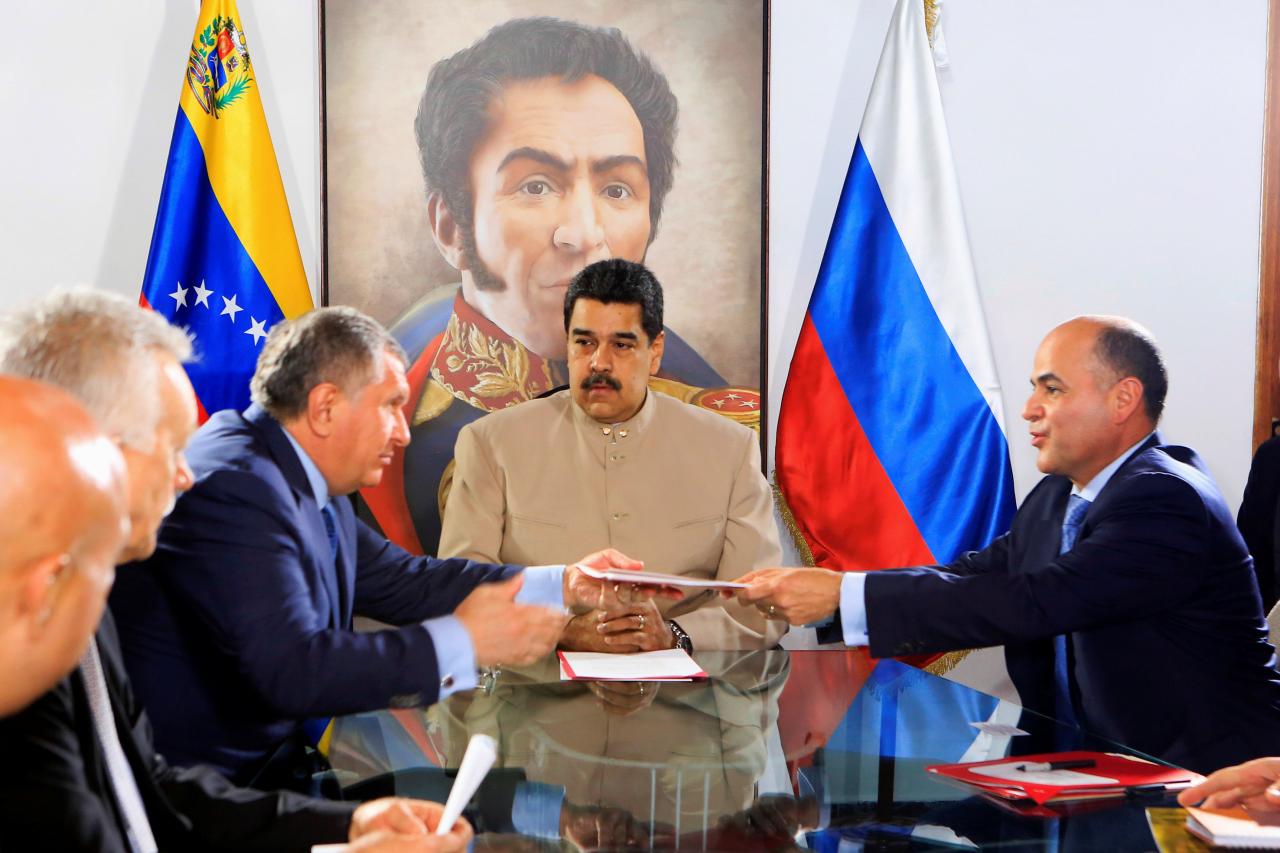Venezuela’s Petroleos De Venezuela SA (PDVSA) and Russia’s state-owned Rosneft Oil Company have signed a deal for the development of two offshore gas deposits.
“Rosneft's plans to develop Venezuelan offshore deposits have been highly appreciated by the country's authorities,” reads a press release issued by Rosneft on December 17.
A day earlier, a license was issued to Grupo Rosneft, a wholly owned subsidiary of Rosneft, for the development Patao and Mejillones offshore gas fields, for 30 years. The contract was signed by Venezuela’s oil minister and the president of the state oil company PDVSA, Manuel Quevedo, as well as Rosneft CEO Igor Sechin. Venezuela’s President Nicolas Maduro was present at the signing ceremony.
Grupo Rosneft will develop the Patao and Mejillones gas deposits, located in the northeastern Mariscal Sucre coastal region of Venezuela, and ship the gas to the mainland to be exported as liquefied natural gas (LNG). The operation will be the first time a floating LNG plant is used in Venezuelan energy operations.
Rosneft estimates that the two deposits contain about 180 billion cubic meters (bcm) of gas, and can churn out 6.5 bcm within the first 15 years of developing the fields. Under the agreement signed earlier this week, Rosneft reserves the right to sell all the output, including in the form of liquefied natural gas.
The deal represents more than just a partnership for energy exploration.
Venezuela currently owes foreign creditors about $140 billion. Russian capital and financial support have helped keep the Venezuelan economy afloat after its oil industry all but collapsed, suffering from falling oil prices and revenues as well as a sharp drop in its currency. PDVSA’s debts with Rosneft stand at $6 billion.
But Moscow agreed on November 15 to restructure Caracas' debt to the tune of $3.15 billion, to be paid back over 10 years, with a minimal payment over the first six years. Russia is Venezuela's largest creditor, since granting a $4 billion loan to Caracas in 2011.
Along with shares in gas projects, Rosneft also has stakes in Venezuelan oil projects, and continues to expand its presence in the South American country despite huge risks associated with Venezuelan assets and the country’s dismal economic situation.
Rosneft and PDVSA are involved in several other projects, such as Petromiranda, Petromonagas, Petrovictoria, Boqueron and Petroperija, in which Rosneft owns a 40 percent share in each. Geological estimations put the reserves within these projects at over 20.5 billion tons. Rosneft has the right to independently sell oil produced on all projects within its share, as well as the right to sell condensate from the Rio Caribe deposit. Production from these projects amounted to 8.4 million tons in 2016, with the Russian company's share totaling 2.67 million tons.
In 2016, Rosneft and PDVSA started production at the fields on the Orinoco oil belt, an area in the southern strip of the eastern Orinoco River Basin in Venezuela that encompasses the world's largest deposits of petroleum. The total recoverable resources within the belt are forecasted to be about 235 billion barrels of oil. Partners expect to drill 571 wells in licensed areas, and pump about 400,000 barrels of oil per day.







 Azerbaijan and Armenia started the process of demarcation of their border on Tuesday, with the installation of the first border markers based on ge...
Azerbaijan and Armenia started the process of demarcation of their border on Tuesday, with the installation of the first border markers based on ge...
 Armenian sappers commenced on Monday mine-clearance operations in the territories adjacent to the Saint Mary Church in village of Voskepar (Armenia...
Armenian sappers commenced on Monday mine-clearance operations in the territories adjacent to the Saint Mary Church in village of Voskepar (Armenia...
 Iran has refuted reports of alleged damage to Shimon Peres Negev Nuclear Research Centre located southeast of Dimona, Israel, during the recent air...
Iran has refuted reports of alleged damage to Shimon Peres Negev Nuclear Research Centre located southeast of Dimona, Israel, during the recent air...
 Iran’s Foreign Minister, Hossein Amir-Abdollahian, has labeled a foiled Israeli drone attack in certain parts of the country as a "failure" for Isr...
Iran’s Foreign Minister, Hossein Amir-Abdollahian, has labeled a foiled Israeli drone attack in certain parts of the country as a "failure" for Isr...



